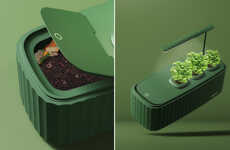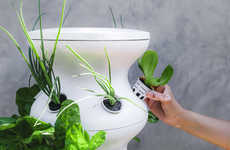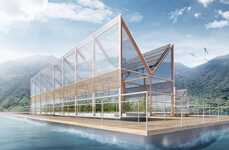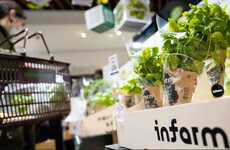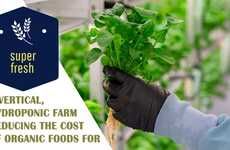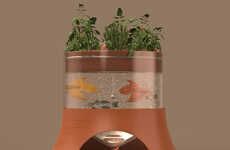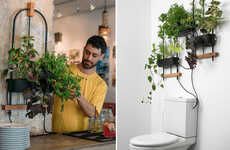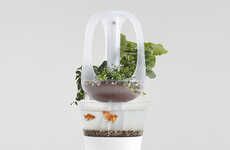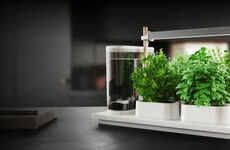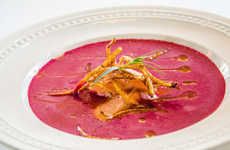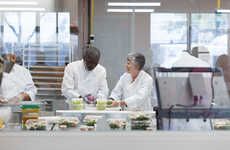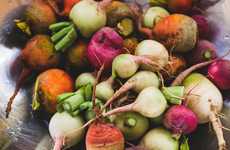
This Urban Farm Uses Fish Waste to Fertilize Plants
Katherine Pendrill — December 21, 2015 — Social Good
References: growingexperiencelb.hacola.org & fastcoexist
'The Growing Experience' is an innovative urban farm that uses fish waste to fertilize crops. In light of California's ongoing drought, many farmers are looking for new ways to conserve water. This closed-loop system serves as one way of reducing the amount of water needed for agriculture.
The Growing Experience is a sustainable urban farm that is using aquaponics to grow local produce. Unlike traditional outdoor farming, this system involves using fish waste to fertilize crops housed inside a contained greenhouse. The plants are not rooted in soil, but rather a sponge-like material that allows them to soak up nutrients and moisture. The water that is not used is then cleaned and sent back to the fish tanks, thus creating a closed loop system. As a result, The Growing Experience uses far less water than traditional farming because no moisture is lost to evaporation.
This sustainable system allows The Growing Experience to supply fresh fruits and vegetables to locals and low-income residents in the areas and support a community-oriented agriculture program.
The Growing Experience is a sustainable urban farm that is using aquaponics to grow local produce. Unlike traditional outdoor farming, this system involves using fish waste to fertilize crops housed inside a contained greenhouse. The plants are not rooted in soil, but rather a sponge-like material that allows them to soak up nutrients and moisture. The water that is not used is then cleaned and sent back to the fish tanks, thus creating a closed loop system. As a result, The Growing Experience uses far less water than traditional farming because no moisture is lost to evaporation.
This sustainable system allows The Growing Experience to supply fresh fruits and vegetables to locals and low-income residents in the areas and support a community-oriented agriculture program.
Trend Themes
1. Aquaponic Urban Farming - Opportunity for businesses to implement aquaponic systems for sustainable urban farming and efficient water usage.
2. Closed-loop Agriculture - Potential for closed-loop agricultural systems to reduce water waste and create a self-sustaining cycle of fish waste fertilizing crops.
3. Community-oriented Agriculture - Growing demand for community-oriented agriculture programs that provide fresh produce and support local communities.
Industry Implications
1. Agriculture - Opportunity for the agriculture industry to adopt aquaponic and closed-loop farming systems for increased sustainability and water conservation.
2. Urban Farming - Growing market for urban farming initiatives utilizing aquaponics to provide fresh produce in cities while minimizing water usage.
3. Community Development - Rise in community-oriented agriculture programs that foster local partnerships and provide access to fresh and sustainable food sources.
6.8
Score
Popularity
Activity
Freshness


